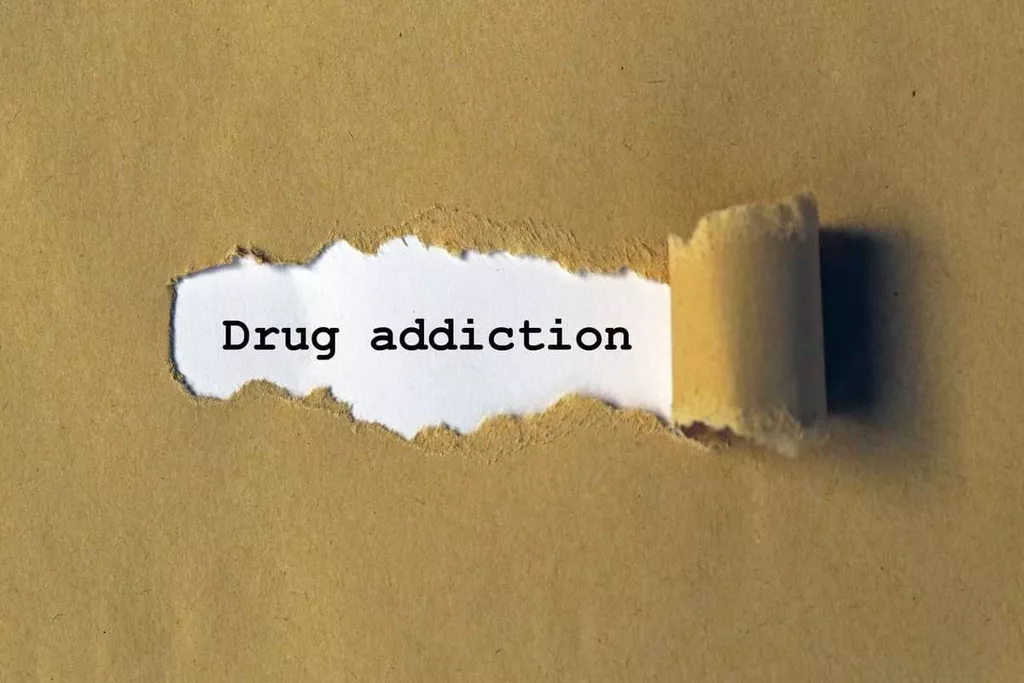Contents
Previous studies investigating the association between IBS and AUD have yielded conflicting results. Masand et al11 reported that IBS was more prevalent among patients with AUD than among controls in a general physician’s clinic for other medical illnesses (41.9% vs 2.5%, respectively). However, this study had a small sample size and did not consider other possible risk factors that may influence AUD and IBS development. The incidence rate ratios and 95% confidence intervals of IBS between the AUD and non-AUD patient groups were calculated using the Poisson regression model.

You can try this method with different alcoholic beverages such as beer, wine, and spirits and note whether some are more tolerable than others. Just remember to drink in moderation—no more than one or two standard drinks per day. According to the research, women with IBS are far more likely to experience diarrhea, nausea, stomach pain, and indigestion after a night of binge drinking than those who engage in moderate or light drinking. Study participants were seen in person for their initial interview, at which time they provided informed consent. All women began a daily diary after this initial visit starting with the first evening of their next menses and continuing until 5 days after the following menses.
Calm your IBS in 6 weeks, naturally.
IBS is a chronic disorder of the gastrointestinal system where a person experiences abdominal pain, bloating, or frequent episodes of diarrhea or constipation. This disorder affects the large intestine, and while it can cause pain and discomfort, it does not do any long-term harm to the gastrointestinal system. A number of clinical guidelines mention alcohol in their recommendations regarding the dietary management of IBS.
Ethyl alcohol is a substance that, in high concentrations, can sterilize healthy bacteria and irritate sensitive tissues within the body, causing changes in the intestines’ ability to absorb everything. Combined with the mental effects of alcohol on the brain , drinking lots of alcohol isn’t the best pastime for those with IBS. However, ethanol also travels through the rest of our bodies, in some cases, causing severe agitation to the digestive tract. Furthermore, quite a bit of energy is required to neutralize this substance that our bodies perceive as a toxin. Let’s take a look at how alcohol affects IBS and what you can do to minimize flare-ups if you choose to have a drink or two.
The AUD severity was classified by the tertile method, including mild , moderate , and severe . There are lots of folk remedies for hangover cures, but nothing is proven by science. If you’re feeling ill, drink lots of water, and consider an electrolyte replacement drink or powder, like Pedialyte. Choose foods that are easy to digest and have a high-water content, like fresh fruit, soups, and saucy dishes like mild curries or noodles with tomato sauce. You may need to eat lower FODMAP foods for a few days while your gut heals.
However, the experience of next-day digestive symptoms was different between the two groups. Heavy alcohol use can cause significant damage to digestive system organs and the lining of the tissues found throughout your digestive tract. But even moderate use of alcohol can have a negative effect on digestion. You can even choose alcoholic beverages that might have less of an impact on your IBS.
Can I drink alcohol if I have IBS?
Alcohol may have an impact on gastrointestinal motility, absorption and inflammation. There is currently a lack of high-quality evidence to confirm that reducing alcohol intake may help with controlling symptoms in IBS. If you are unsure of how alcohol affects your IBS, try eliminating alcohol completely and see if symptoms subside. Once symptoms are stable, see if reintroducing alcohol triggers your gut symptoms.

For those who suffer from IBS, wine can be less severe than drinking beer with IBS. Regardless of the alcohol that is consumed, there is a link between alcohol use and diarrhea. When alcohol is introduced into the process, it speeds up the digestive system and does not allow water to absorb as it usually would. Conversely, alcohol constipation occurs when the body is extremely dehydrated after consuming vast amounts of alcohol.
Heavy drinking is defined as drinking eight or more drinks per week for women and 15 or more drinks per week for men. Alcohol has a weakening effect on the esophageal sphincter which can lead to acid reflux. In the stomach, alcohol can cause an increase in acid secretion and slow down stomach emptying, leading to irritation and feelings of nausea or at higher amounts, episodes of vomiting. Barbara Bolen, PhD, is a licensed clinical psychologist and health coach.
Once alcohol is absorbed, it acts like a diuretic, making you urinate more often. Alcohol dilates your blood vessels, making them bigger alcohol consumption and blood pressure and causing headaches. Also, your liver is working overtime to process the alcohol, which means your body needs more water to function.
Binge Drinking May Worsen GI Symptoms in Women with Irritable Bowel Syndrome
Gluten, which can be found in some alcohol, is one of the IBS triggers that can cause digestive issues. Commonly referred to as alcohol use disorder , alcoholism is a form of alcohol use that involves a person’s inability to manage his or her drinking habits. Alcoholic drinking can spiral out of control and turn into problematic and uncontrollable drinking, which physically and emotionally affects the person. Like any other substance use disorder, AUD is considered a disease, and there are varying levels of use which range from mild, moderate, or severe. Depending on a person’s level of sensitivity, just one alcoholic beverage can be enough to trigger an IBS flare-up and cause alcohol-related diarrhea.
For a person with irritable bowel syndrome , this can become complicated. Many people who have IBS avoid alcohol due to the fact it may be a trigger for symptoms. Alcohol and its metabolites are known to affect the GI tract motility, absorption, and permeability. With a little bit of extra care you may be able to enjoy a glass or two without your gut paying the price. Although there are limited studies available evaluating the effects of haven house los angeles, there is evidence to show that alcohol can negatively affect digestion. So, if you want to drink, make sure you do so in moderation, monitor your symptoms, and choose gut-friendly beverages, such as low FODMAP wines or spirits.
- Heavy alcohol intake may exacerbate gastrointestinal symptoms in adults with irritable bowel syndrome ; however, the role of alcohol in IBS is unclear.
- Of course, it’s not only the type of alcohol that matters but also the quantity.
- You can try this method with different alcoholic beverages such as beer, wine, and spirits and note whether some are more tolerable than others.
- With the exception of cigarettes and symptoms of constipation, our data suggest that caffeine and cigarettes play at most a modest role in GI symptoms among women with IBS.
The Cox proportional hazards regression model was used for measuring the risk of IBS in the AUD patients compared with the non-AUD patients and presented using adjusted hazard ratios and 95% CIs. We presented the aHR of IBS between AUD and non-AUD groups stratified by sex (women/men), age, and different comorbidity types (yes/no) by Cox proportional hazards regression model too. The mean of age was chosen as an age stratified analysis cut-point and then presented the relative risk of IBS between both groups in 45 years old. We further examined the association between the severity of AUD and IBS according to severity, which was defined as the total length of hospital stay caused by AUD in the follow-up period to the length of follow-up period.
Mixers can also trigger IBS
While this episode doesn’t address alcohol and IBS directly, there’s some great science about drinking. Even some light drinking can lead to an IBS flare-up, so those diagnosed with IBS should avoid alcoholic beverages and mixers which can have high fructose corn syrup. Those who have IBS and celiac disease, which are both similar and have overlapping symptoms, will likely need to avoid drinking alcohol.
It can be helpful for IBS patients to keep a log of the foods they eat each day. This way, they can determine which foods are irritants and remove them from their diet. Too many alcoholic drinks can also damage the esophageal sphincter.
If you’ve cut out alcohol and find that your symptoms persist, you may want to look into other ways to manage your IBS, such as starting a low FODMAP diet or trying gut-directed hypnotherapy. Those who drink alcohol can irritate or damage tissues and organs in their digestive tract if they don’t manage their alcohol consumption. Drinking an excessive amount of alcohol or binge drinking can cause a number of gastrointestinal problems. For a person who has a chronic digestive health disorder like irritable bowel syndrome , the question as to whether or not to enjoy some drinks is a complicated one. Many people who have IBS avoid alcohol altogether due to the fact that they perceive it to be a trigger for their symptoms.
Of course, it’s not only the type of alcohol that matters but also the quantity. Try sticking with 5 ounces per sitting to start, being super mindful not to have too many drinks the 6 stages of change in addiction recovery over too short of a time period. Watch your mixers, too – skip the sugary sodas and high FODMAP fruits, choosing beverages that are safe to have on the Low FODMAP diet instead.
Patterns of alcohol consumption did not differ between IBS patients and controls . Women in our study reported drinking a mean of 0.52 alcohol-containing drinks per day. Approximately one-fifth of women reported never drinking during the study period, while 62% reported drinking less than a drink per day, and approximately one-fifth reported a mean of more than 1 drink per day. Approximately one-third of all women reported binge drinking on one or more occasions during the study period. During a binge drinking episode, the mean amount consumed was 4.9 drinks. Figure 1 provides three exemplars of patterns of drinking among IBS women who reported binge drinking during the study, with one each exemplifying light, moderate, and heavy drinking overall.
What Is the Best Drink for IBS?
Refer our programs to your patients and track their progress remotely. Matter Blog Read evidence-based articles, guides, health resources and more. Verywell Health uses only high-quality sources, including peer-reviewed studies, to support the facts within our articles.
IBS and Alcohol: Does Drinking Trigger Symptoms?
Wechsler H, Davenport A, Dowdall G, Moeykens B, Castillo S. Health and behavioral consequences of binge drinking in college. The Dry July campaign started in 2008 as a way to increase awareness and raise money to support cancer organisations around Australia to assist in the comfort and care provided to individuals impacted by cancer. Having a month off alcohol can also be encouraging for numerous health aspects too, such as reducing the risk of cancer, heart and liver disease. Evia uses gut-brain hypnotherapy to help you manage menopausal hot flashes and night sweats without drugs. Hypnotherapy combines hypnosis and clinical therapy to address mental or physical concerns such as anxiety, irritable bowel syndrome, and smoking cessation.
If you or a loved one are struggling with alcohol abuse, contact our helpline to learn about our addiction treatment services. Stress, emotional state, social factors, food, and drink all interact in a complicated way to increase the symptoms of IBS. However, IBS coupled with the prolonged use of alcohol complicates the diagnosis. IBS and alcohol use share similar signs and symptoms and are often co-occurring. Take the first step toward addiction treatment by contacting us today. Manipulation of dietary short chain carbohydrates alters the pattern of gas production and genesis of symptoms in irritable bowel syndrome.
If you decide to drink alcohol, pay attention to your consumption to help you determine whether the type and amount of alcohol affects your IBS, and if so, how. For example, while many fruit juices are high in FODMAPs, tomato juice and cranberry juice can be low-FODMAP choices. Experts note following a low-FODMAP diet can help relieve symptoms for many people who have IBS.


